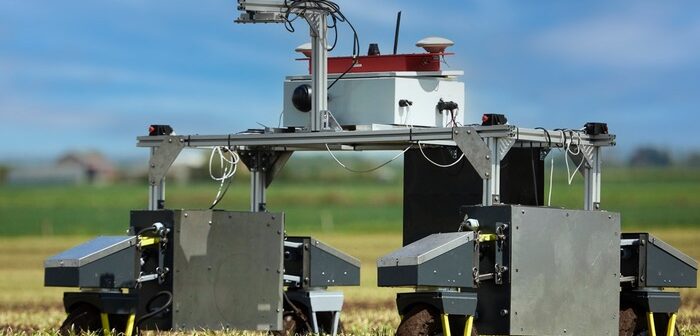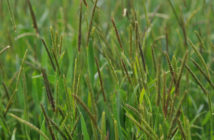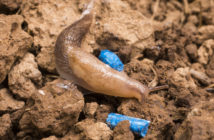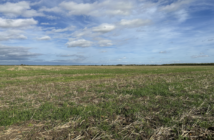Ground-sensing technology TuberScan – developed by agri-tech business B-hive Innovations and partners – is entering its final phase of testing both overseas and now in the UK following the start of this year’s weather-delayed potato growing season.
In its current iteration, the TuberScan system comprises of a bespoke ground penetrating radar (GPR) system, GPS units and in-field and remote sensors, backed up by computer vision and AI, which provide detailed information on potato crop growth characteristics and performance.
The system also detects where each potato has been planted, to go beyond traditional sampling methods conducted by growers.
The four-year research and development project for TuberScan has been funded by Innovate UK across two different research programmes. B-hive has collaborated with nationwide potato supplier Branston Ltd, The University of Manchester and Harper Adams University to create demonstration units.
Effie Warwick-John, project manager on TuberScan at B-hive Innovations, is confident that the project is on track for a successful final season, which has commenced with field trials in Mallorca and Lincolnshire.
Ms Warwick-John said: “We are looking to collect as many findings as possible into crop performance by September, addressing the lack of clarity that growers currently contend with when trying to predict growth of their crops underground.
Enough hardware for UK season
“The trials in Spain enable us to check that our equipment is working accurately, with enough hardware stocked ahead of the UK growing season to allow for damage to prototypes during testing. It allows us to determine which hardware choices are best suited to the start or end of the season as conditions change and foliage develops.”
Working with Mateu Exports in Mallorca, the project team has been able to take advantage of the earlier growing season in Mallorca, acquiring data across three fields on the performance of the system, as well as doing trial digs, to compare machine learning accuracy against real world data.
Ms Warwick-John added: “The Mallorca trials give us a fantastic headstart to be best prepared for the UK growing season. Acquiring images of plants and stems has helped us to test our image processing pipeline, since we don’t have much time in the season to check this.
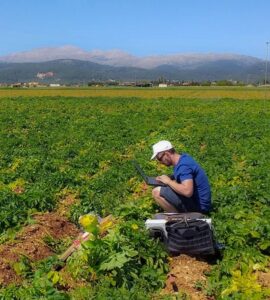
Mallorca trials
“We are experimenting with ground-penetrating radar systems (GPR) that can operate to a high accuracy despite having a relatively large air gap between the sensor and the soil, providing a great balance between ease of mounting and quality of data.”
In the UK, TuberScan has also been trialling in three fields owned by David Armstrong Farms in Lincolnshire to collect additional testing data.
David Armstrong said: “As a grower, I would like to learn the most about my produce as possible. Ensuring its quality, variety and yield size is crucial to help me make informed decisions around the growing process and understand the marketable yield.
“It’s exciting to see how modern methods of monitoring root crop performance could soon become the norm and it’s imperative that we keep waste to a minimum. From first-hand experience we believe that TuberScan can be a key component to achieving this.”
To conduct further assessment of the technology, B-hive has also installed a polytunnel space to support with TuberScan and other projects, allowing testing to continue when outdoor conditions are too wet. It has also enabled the team to test TuberScan with different potato varieties as well as lighter and darker soils, from which the machine learning technology can be trained to detect the plants.
Ms Warwick-John added: “The system is continually evolving and beyond September we aim to be in a position to explore the commercial viability of a ground sensing product. We’ve had great interest to date and hope that TuberScan continues to make a major contribution to eliminating food waste and addressing supply chain issues for the future.”

